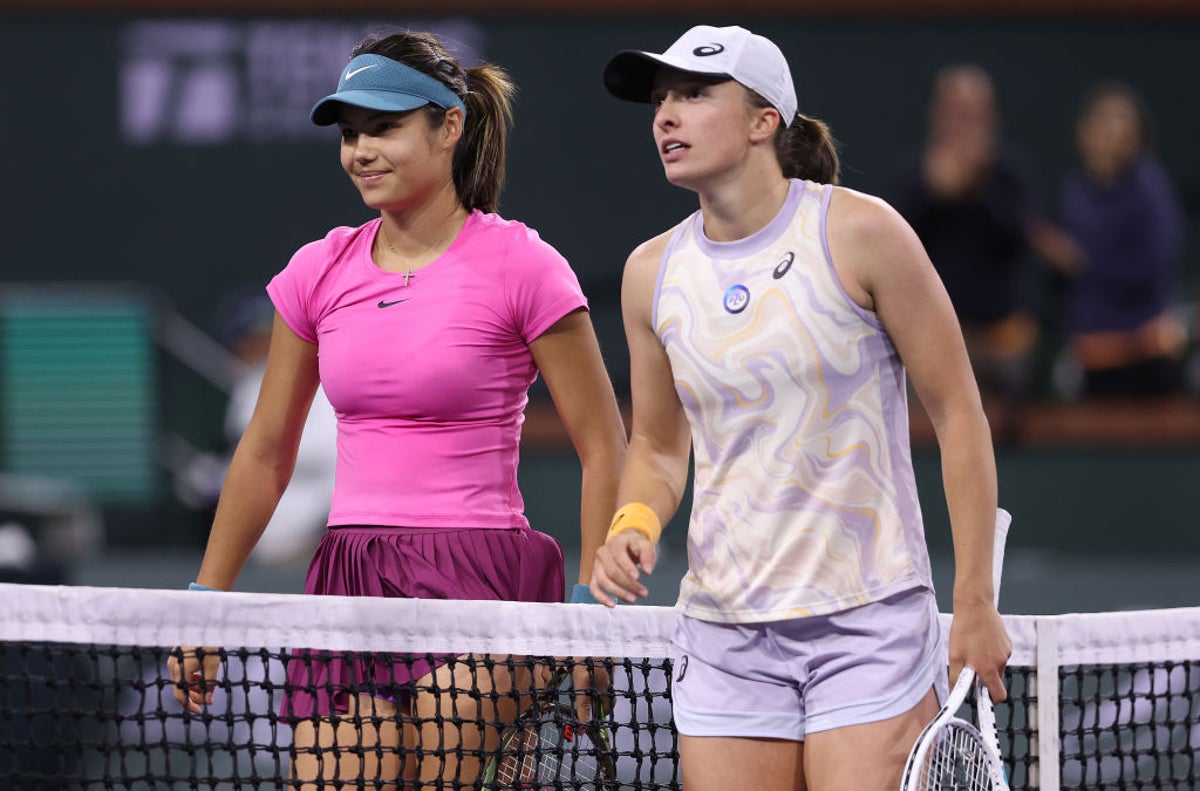In the high-stakes world of professional tennis, moments of triumph are often preceded, or indeed followed, by periods of intense challenge. For Emma Raducanu, a talent who exploded onto the scene with a Grand Slam victory, the past week presented a particularly unique test of her burgeoning career. Not once, but twice, the young Briton found herself at the precipice of victory, holding match points, only to see them slip away. It`s an experience that would rattle even the most seasoned veteran, and for Raducanu, it became a crucible for introspection and growth.
The Crucible of Defeat: A Week of Unprecedented Challenges
The details are stark: two consecutive tournaments, two decisive matches against formidable opponents – Barbora Krejcikova and Jessica Pegula. In both instances, Raducanu had victory within her grasp, holding three match points. To fall short once is a tough pill; to experience it twice in rapid succession, as she herself noted, was unprecedented. The pressure of converting those critical points, especially for a player still navigating the intense demands of the WTA Tour after a meteoric rise, is immense.
“I think for me, it was quite difficult,” Raducanu reflected with a candor often absent in professional sports. “I lost both my last two matches from match points. That has never happened to me before, and then twice in a week. It was something new, and I had to process it.”
This admission underscores the unique psychological burden that can accompany such near-misses. For any athlete, encountering a novel, challenging scenario requires a period of assimilation, a mental recalibration to understand what went wrong and how to prevent its recurrence. Raducanu`s situation was no different; she was charting new emotional territory.
A Champion`s Response: Resilience in Action
Yet, what defines a champion isn`t merely the ability to win, but the capacity to learn from defeat. Raducanu`s response wasn`t one of lingering despair. Instead, she described a surprisingly swift recovery after the second loss. Her pragmatic approach, turning immediate disappointment into an analytical assessment, speaks volumes about her mental fortitude and the rigorous training regimen that defines professional tennis.
“I think it was easier to get over the second loss than the first because I knew I played better and elevated my level,” she explained. “I don`t think I dwelled on it too long. I went straight back to work and tried to prepare as best as I could for this week [in Wuhan].”
This statement offers a critical insight into the mindset of elite athletes: constant evolution and relentless preparation are not just goals, but immediate imperatives. Dwelling on past failures is a luxury few can afford when the next challenge is always just around the corner.
Signs of Progress Amidst Setbacks
Indeed, beneath the surface of those agonizing defeats lay clear indicators of progress. Raducanu pointed to specific improvements in her game, a testament to her diligent work behind the scenes. She observed a marked difference in her play compared to earlier in the season.
“I think I was doing things that I wasn`t really doing well in the first part of the season,” she observed.
A notable example was her improved handling of Jessica Pegula`s powerful shots, a stark contrast to their previous encounter in Miami. “This time I felt a lot more prepared and together, which is good.” This self-awareness – the ability to pinpoint technical and strategic advancements even in moments of competitive setback – suggests a deep engagement with her craft. It`s a crucial distinction: not just winning, but understanding how one plays and how one can play better, irrespective of the immediate outcome.
New Horizons: Adapting to Wuhan`s Grandeur
As the tennis circuit moved to the vibrant city of Wuhan for the WTA 1000 event, Raducanu found herself in a new environment, both literally and figuratively. Her observations of the host city offered a refreshing glimpse into her adaptive mindset. From the picturesque lavender fields outside the tennis center to the sheer scale of the city`s modern architecture, she absorbed it all with a sense of wonder.
“I saw some cool places. Right opposite the tennis centre there`s a lavender field which looks really effective and colourful. And obviously here it`s a big national holiday, a lot of people. The area where we stayed is very new, and the buildings here are very big. The scale is huge, and it`s very interesting to see,” she recounted.
Her appreciation extended to the competition venues themselves: “I’ve already seen two very beautiful stadiums. They are very beautifully and interestingly designed. It will be nice to play in such a unique arena.” For a player constantly evolving, adapting to new conditions and embracing new experiences is part and parcel of the journey. “I`m playing here for the first time, and that`s also exciting in a good way. I`m still getting used to it, but I`ve already adjusted a bit in the last couple of days. The conditions have changed again after Beijing, so I`m trying to adapt.”
The Unfolding Narrative of a Champion
Emma Raducanu`s recent experiences serve as a poignant reminder that even for prodigies, the path to sustained success is rarely linear. Losing from match points is a bitter pill, a harsh lesson delivered with uncompromising efficiency by the sport itself. But her reaction – one of swift processing, analytical reflection, and an immediate return to the grind – highlights a formidable mental fortitude. It’s not just about bouncing back; it`s about learning to launch forward from moments of adversity. As she navigates the unique challenges of the WTA tour, her ability to transform setbacks into stepping stones for growth will undoubtedly be a defining characteristic of her promising and continuously unfolding career.

